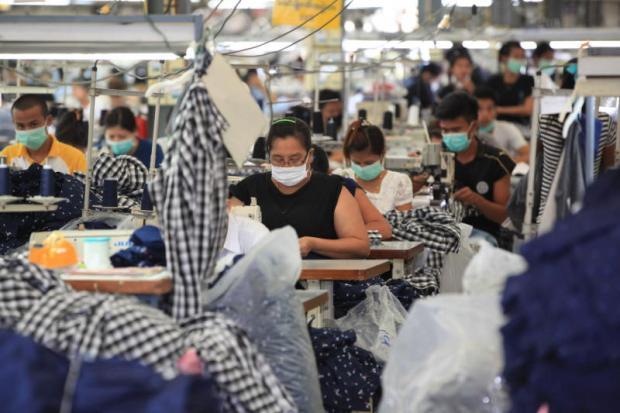Thai salaries set to rise 5-6% annually in short term
Willis Towers Watson, a global advisory firm, has forecast salaries in Thailand to rise by 5-6% annually in the short term, saying the country’s economy and inflation are stable. However, there are no major positive factors to support sharp pay increases at the moment.
The survey projects overall salaries in Thailand to increase by 5.5% in 2018, slightly higher than the actual salary hike of 5.2% in 2017. The survey had more than 4,000 respondents in Asia-Pacific, with 132 firms participating in the Thai market.
The salary rise in Thailand ranks in the middle of the pack regionally. India was the regional leader for 2018 pay rises with a 10% increase, while Sri Lanka was at 8.6% and Indonesia 8.5%.
Pichpajee Saichuae, managing director of Willis Towers Watson’s local unit, said salaries in Thailand reflect the overall economic sentiment, which is now stable, with inflation staying at 1.1%.
“Thailand’s economic outlook has grown slowly, unlike the three leading countries whose projection is robust,” she said. Although the government has issued many projects to drive GDP, there has not yet been much impact on salaries, said Ms Pichpajee.
“The stable rise of salaries in Thailand is similar to that of Hong Kong and Singapore, where the growth rates have not been significant.”
Moreover, the majority of sectors see similar trends, except construction which saw the smallest rise of 4% in 2017 and it is projected to continue with the lowest rise rate at 5% in 2018.
The insurance sector is expected to see a rise of 5.5% in 2018, down from 5.9% this year, she said.
The other survey titled “2017 general industry total compensation” showed Thailand’s overall turnover rate in 2017 reached 12%, unchanged from the previous year, and was also lower than the overall voluntary attrition rate in Asia-Pacific at 15%.
Electronics manufacturing reported the highest turnover at 18% and life insurance followed with 16%. The asset management sector had the lowest turnover at 10%.
In terms of variable bonuses in 2017, the average bonus was 2.4 months of base salary, but electronics manufacturing and general insurance have the lowest variable bonus at 1.8 months.
The asset management sector offers the highest bonus at 5.5 months this year.
In addition, fresh graduates with a bachelor’s degree can command starting salaries of 15,000 baht, while those with a master’s degree can request for 20,500 baht at minimum.
Top entry-level salaries for new graduates can be found in engineering, information technology, law, human resources and accounting & finance, according to the survey.
Source: https://www.bangkokpost.com/business/news/1368099/thai-salaries-set-to-rise-5-6-annually-in-short-term


 English
English




